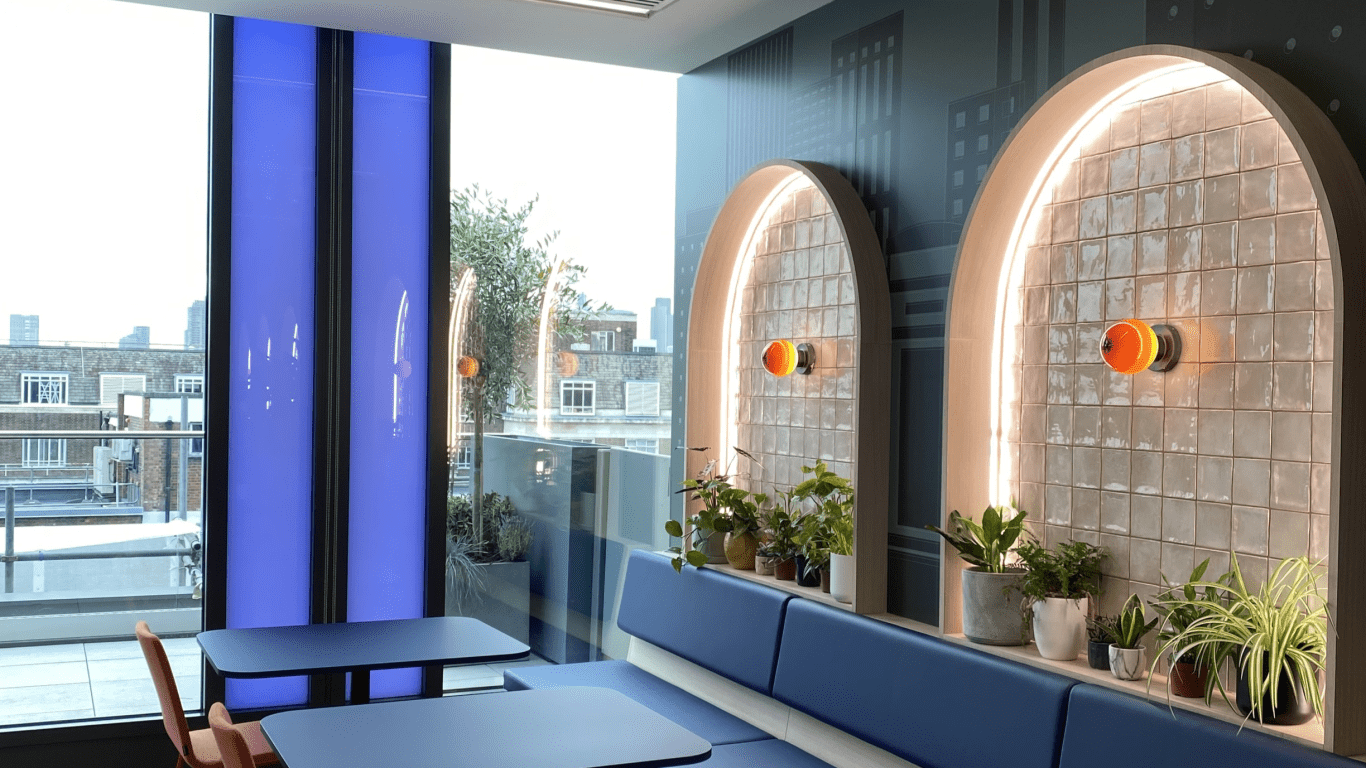The truth behind Zoom’s return to office policy
Alana Collins, head of real estate and workplace at Zoom, shares all with UNLEASH.
Expert Insight
Zoom has made headlines this week by calling employees back to its office.
Here's the real story.
And how it's playing out in Zoom's newly opened London HQ, which UNLEASH visited this week.
It seems like a contradiction in terms to share that offices will play a crucial role in the future of work at Zoom.
Remember, Zoom’s video conferencing business boomed during the pandemic entirely due to the necessary, and rapid, shift to remote-only work.
That’s right, Zoom is not abandoning its office to go fully remote. Instead, the tech giant is embracing hybrid work and is asking employees who live within 50 miles of a Zoom office to work in-person two days a week.
It is important to note that this return to office will impact just 34% of Zoom’s 7,400-strong global workforce.
In a statement, a Zoom spokesperson shared: “We believe that a structured hybrid approach – meaning a set number of days employees that live near an office need to be onsite – is most effective for Zoom.
“As a company, we are in a better position to use our own technologies, continue to innovate, and support our global customers.”
Alana Collins, head of real estate and workplace at Zoom, tells UNLEASH in an exclusive interview: “What we have learned through our customer advocacy groups is that the world is now hybrid. We need to be able to adapt and learn.
“We want to walk that walk – we need to be in the office, testing our products”, leveraging Zoom workspaces and bringing teams together – innovation happens when people are together.
It is important to note that, while this may seem sudden, Zoom was cognizant of giving people “enough runway time” to help them adapt.
In fact, Collins shares that many employees were already travelling into the office – “we were seeing pretty good utilization over the last six months”.
Zoom is also clear that there is no return to office mandate – workers are not being forced or ordered back into the office, as some news outlets may have suggested.
Those who live within that 50 mile limit are encouraged to work with their managers, if necessary, to flex their time in the office.
“We’re encouraging managers to really manage that process, [and] own it” – “there are some roles that [are] fine remotely, [but] that has to be determined with your leaders”, shares Collins.
Ultimately, Collins estimates that 60% of workers will remain remote.
But, importantly for Zoom, these workers will not be excluded from an office environment – instead, the tech giant is working with Upflex, a hybrid workspace tech company, to provide local spaces for them to collaborate with colleagues and customers.
Getting intentional and technological with the office
As part of Zoom’s push to return to the office, for some workers at least part of the week, the tech giant is investing heavily in its workplaces.
Zoom was very aware that if people are going to take the time to travel to the office, then they need to have top-notch spaces to work in.
“It’s not just [about] going to a place, and being there eight to five, and sitting at that desk. It is about intentional work”, explains Collins. The office “should be a destination”, “a place you want to be”.
This is why Collins and her workplace team work closely with different departments on their desires around office experience.

Credit: UNLEASH.
The best example of Zoom’s investment in its spaces is the company’s new London HQ – UNLEASH was given a sneak peek ahead of its official opening later this week.
Although Zoom did not share how much they have spent on the new London office, Collins notes “we’re investing much more than we did five years ago”.
The new London office has lots of open collaboration spaces, as well as desks for quiet work, plus a range of different meeting rooms to suit different types of meetings.
Those meeting rooms are all sound proof, “acoustics are pivotal when you’re doing video conferencing”, notes Collins.
Zoom has also, of course, been really focusing on tech experience in its workplaces.
The London HQ is really benefitting from this focus on using technology where it makes sense. The idea is to learn from London, and then push out similar technologies to Zoom offices globally, according to Collins.
Zoom’s own software has evolved since the pandemic – the company is now more than a video conferencing platform. Employees can use the Zoom app to not just join meetings, or host events, but also to book their desk, meeting rooms and food in the office.
Collins shared during a walkthrough of the London office that when employees were asked why they’d like to come into the office – the technology, socialization and food were top of mind. “Breaking bread with each other is super important,” she tells UNLEASH.

Alana Collins, head of real estate and workplace, Zoom.
The London office is also equipped with the latest hardware – different partners are chosen based on the needs of the specific room.
The idea behind having the best tech experience also to create an equitable workplace – those working from home should feel included in meetings happening the office, and Zoom technologies like Zoom Rooms, Smart Gallery, and Intelligent Boardrooms aim to help here.
For those at home, these tools individually frame those in the room – this means, rather than looking at a mass of people and feeling left out, they can really see all the attendees.
The hardware enables these software tools to perform at their best in Zoom offices in London and beyond.
Zoom’s plans for Europe
This new London HQ is a clear signal of Zoom’s commitment to the UK. Zoom has 200 employees in the UK and expects around 70 to 80 of them to be in the office regularly.
Collins tells UNLEASH: “London is such a wonderful hub for many tech companies – if you look at our customer base in the UK, it’s predominantly London. It is important to connect with customers, and really showcase the platform” by showing it in action at the London HQ.
The real estate team are really customer zero for the latest Zoom products, and hardware partnerships.
Looking beyond the UK, Zoom is laser-focused on having a European footprint. It appointed its first head of EMEA, Frederik Maris, in March, and has introduced local data storage options to its European customers.
Plus, in April, Zoom bought Ireland-based employee engagement startup Workvivo. This is a commitment to Zoom’s move beyond video calls, and towards becoming a general workplace tech company.
During the London HQ walkthrough, Ben Neo, head of customer experience for UK&I, shared that Zoom is excited about this acquisition and its ability to drive employee engagement within Zoom (as well as beyond).
Collins and her team are soon going to be creating Workvivo a new location in Ireland, applying all the lessons from the London HQ redesign. Watch this space.
Sign up to the UNLEASH Newsletter
Get the Editor’s picks of the week delivered straight to your inbox!

Chief Reporter, UNLEASH
Allie is an award-winning business journalist and can be reached at alexandra@unleash.ai.
-
Topics
Future of Work
Contact Us
"*" indicates required fields
Partner with UNLEASH
"*" indicates required fields